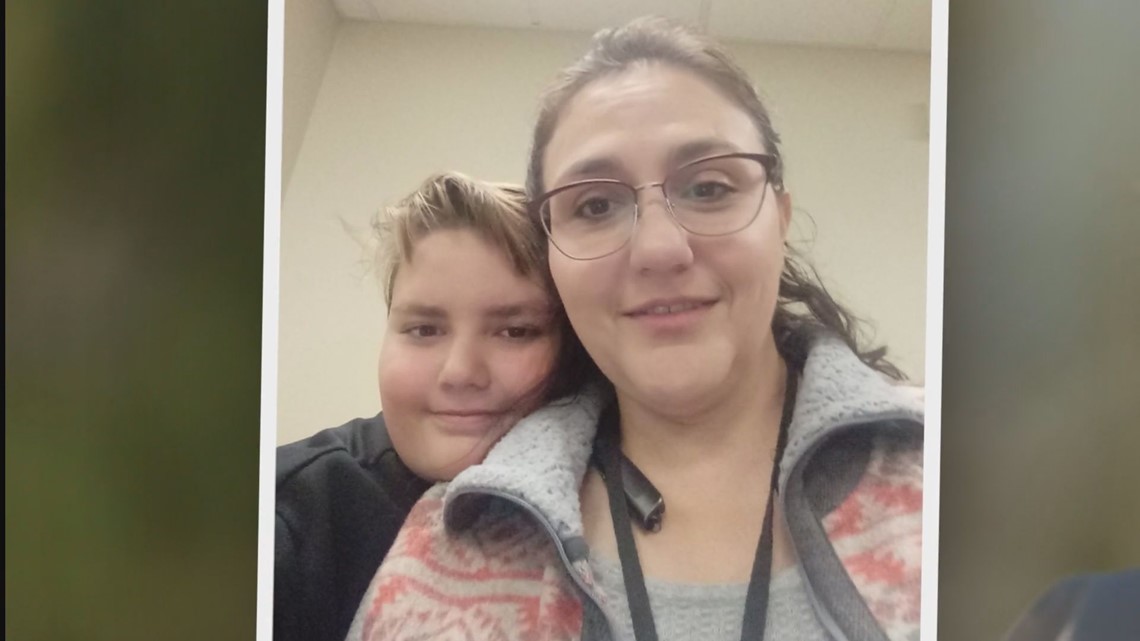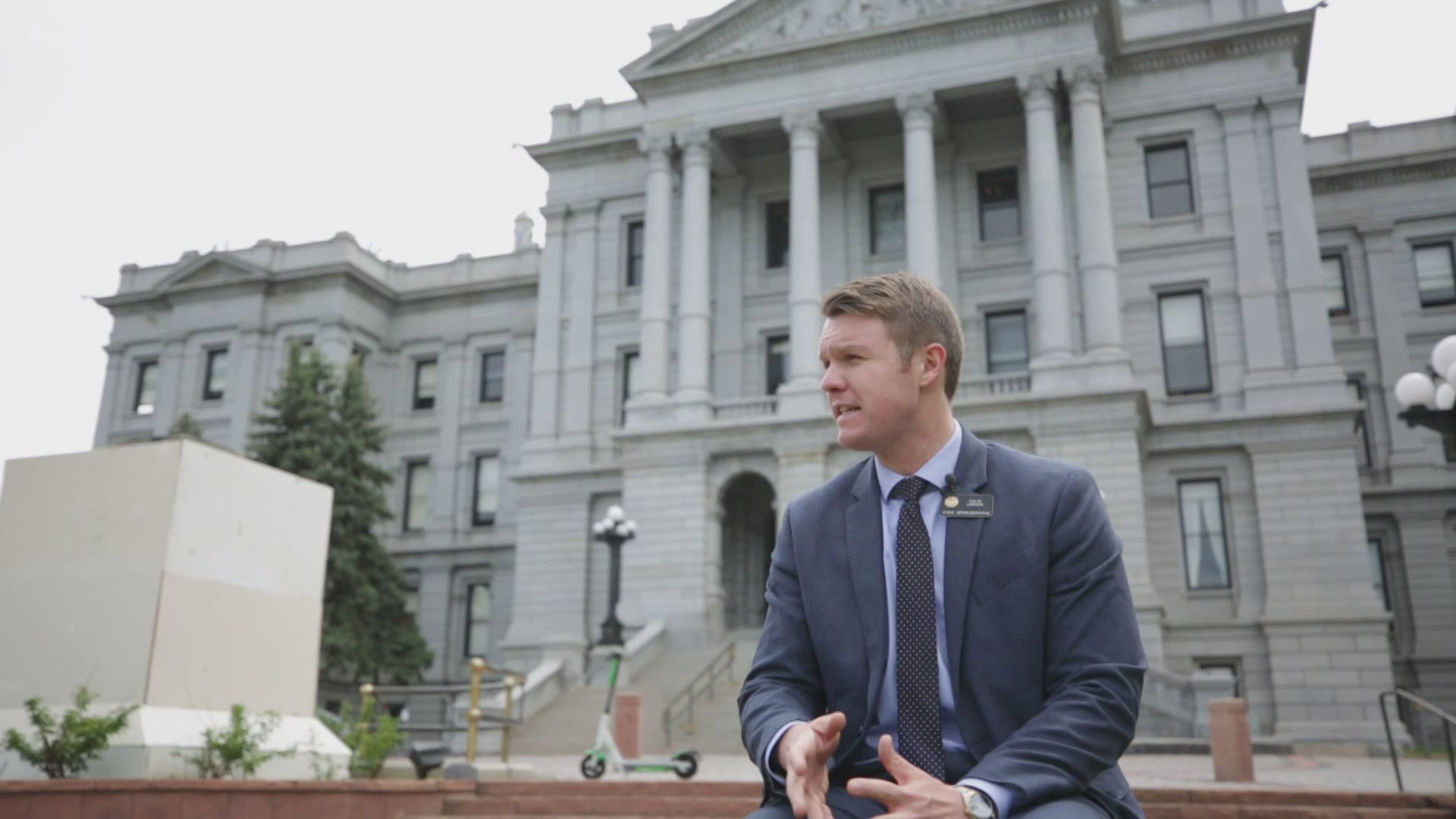COLORADO, USA — A state child welfare committee will consider changing the way allegations of institutional abuse are investigated at residential centers for troubled kids, following news reports about a chronic runaway problem that resulted in two deaths.
Two state lawmakers, meanwhile, are vowing to strengthen mental health treatment for children and compel the state child welfare division to examine its policies after a multipart Colorado Sun/9NEWS investigation was published May 17.
RELATED: Running out of Options: Facilities for children carry burden of broken mental health system
The Colorado Department of Human Services, which includes the child welfare division, notified staff in a May 28 memo that it would review rules regarding allegations of abuse and neglect of children who live in 24/7 youth treatment facilities.
“Several recent events have presented an opportunity” to explore the rules that county child protection officials must follow when deciding whether to investigate allegations of abuse at Colorado’s state-licensed child centers, the memo said. The state’s 52 residential facilities house children and teens with severe behavioral and mental health issues, including foster kids who have lived in numerous foster homes.
Editor’s note: This is part of a joint Colorado Sun/9NEWS series examining residential treatment centers where Colorado houses foster youth and kids with severe behavioral issues. See more from The Colorado Sun by signing up for The Sunriser newsletter.
In 2019, the state child protection ombudsman asked state child welfare officials to strengthen rules regarding institutional abuse.
The state child welfare code — called Volume 7 — requires counties to use a team of caseworkers to determine whether to investigate reports of abuse or neglect within a family. But when it comes to reports of abuse or neglect at residential treatment centers, there is no requirement that a team of experts review the report to determine whether the case deserves further investigation. Instead, counties often have one caseworker who makes the decision, which is double-checked by a supervisor.
Child Protection Ombudsman Stephanie Villafuerte asked the state two years ago to change its policy after looking into dozens of abuse and neglect allegations at the now-closed El Pueblo Boys & Girls Ranch that she believed did not receive proper scrutiny. Seven counties received 243 reports of suspected institutional abuse at El Pueblo in one year, but the vast majority — 88% of them — were never assigned to a caseworker for further review.
Reports of abuse at the center were screened out at a rate three times higher than reports that involved abuse within families, the ombudsman found. State child welfare officials say reports are evaluated appropriately, but the ombudsman is concerned that county child protective officials too often are giving institutions a pass.
State officials said they already had plans to review the rules regarding institutional abuse before the Sun/9NEWS investigation was published. But the news organizations began asking questions and filing public records requests regarding abuse and neglect at various youth residential treatment centers in March. The state child welfare group assigned to look into institutional abuse was created in April, according to the department memo.
The committee will define its scope at its first meeting, scheduled for June 15, but in general will focus on reviewing definitions of institutional abuse as well as the investigation process spelled out in state regulations, state officials said.
“The group will determine if current rules adequately address abuse and neglect within facilities when compared to abuse within a family,” said Mary Gerlach, communications manager for the state Office of Children, Youth and Families. “The group will also analyze if the rules hold facilities to the correct standards.”
The ombudsman said that while she is encouraged “that there appears to be some movement on these critical issues,” she is frustrated that it’s taken the state this long to react to her recommendations.
“I’m frustrated with the lack of urgency – the lack of urgency when we learn that there are faults in the system and the amount of time that bureaucracies spend – sometimes years – thinking about whether to fix those cracks and fault lines,” Villafuerte said.
Since her review of El Pueblo in 2019, the ombudsman has investigated reports of abuse and neglect at Tennyson Center for Children in northwest Denver, which closed its residential program this year. Allegations included children breaking into a medicine cabinet and overdosing on prescription medicine, as well as a 12-year-old having sex with an 11-year-old.
“Those incidents alone should have us concerned,” she said via email. “But it’s the incidents we don’t know about that should have everyone taking action now.”
The Sun/9NEWS investigation found that children are running away from residential centers in the Denver area on a near-daily basis. In two separate cases, a 12-year-old boy and a 15-year-old boy were struck and killed by vehicles after running away from the centers where they lived and wandering around in the dark without supervision.
The centers are prohibited by state regulations from locking children inside the facilities, and staff are barred from physically preventing them from running away. Instead, staff try to follow children who run off campus, and often call police when they need help returning them to the facility.
Timothy Montoya-Kloepfel died after he was hit by a car after running away from Tennyson Center for Children. He was 12 when he died in June 2020.


The frequent 911 calls have pushed local police departments to the point of exasperation.
In Westminster, a youth center called Devereux Cleo Wallace is regularly the address with the highest number of police reports in the entire Denver suburb.
Tennyson Center for Children in northwest Denver called police 357 times in 2020. And Denver police were called to Mount Saint Vincent treatment center, also in the northwest part of the city, about twice per week on average in 2019 and 2020.
State Rep. Colin Larson, a Republican from Jefferson County, said he contacted the state child welfare department looking for answers after reading the Sun/9News investigative series. He said he wants lawmakers and child welfare officials to look into staffing ratios at youth residential treatment centers and possible regulatory changes that would make kids safer.
Some of the answers, the lawmaker said, exist in the 2019 ombudsman report that included recommendations never implemented by the department.
It was pretty alarming — the fact that you’ve got these centers placing almost daily calls into the police is a huge misallocation of resources.
“It was pretty alarming — the fact that you’ve got these centers placing almost daily calls into the police is a huge misallocation of resources,” Larson said. “It really begs the question of are these kids getting the appropriate level of care. Clearly, the current system is not working and something needs to be done.”
The legislature, he said, should explore whether Colorado would save taxpayer money by making sure youth residential centers have enough staff rather than overburdening local police departments.
“We are talking about tens of thousands of dollars of cost to some of these departments,” Larson said. “That’s not an effective use of taxpayer dollars.”
“It really needs to be looked at holistically, especially when we are talking about kids. We’re talking about somebody with their entire life ahead of them,” he said. “We can get a 20-year-old back on the right path, make them a productive member of society, get them employed and hopefully paying some taxes. That’s a good long-term investment for the state.”
State Rep. Dafna Michaelson Jenet, a Commerce City Democrat, said the problems identified at the centers — including runaways and overwhelmed staff — are a symptom of a mental health system inadequate to address the “mental health crisis our children are facing.”
“Some of these kids were known as runners and it’s very hard when you are working with a group of youth who have severe mental health crises to keep them in all the time,” said the lawmaker, whose son attempted suicide when he was 9 years old. “Is it our duty to figure out how to fix it? Absolutely.”
Many parents are searching for residential help for their children, but beds in locked psychiatric facilities — which are a step up in restrictions from residential treatment centers — are not available, she said. Michaelson Jenet said she is “really nervous” about Colorado’s massive shift in child welfare aimed at shrinking the number of residential treatment beds and spending more money on child abuse prevention.
“We need these facilities, I believe,” she said. “I hear from many parents who are waiting for help. We need to get ahead of this.”
SUGGESTED VIDEOS: Investigations from 9Wants to Know

